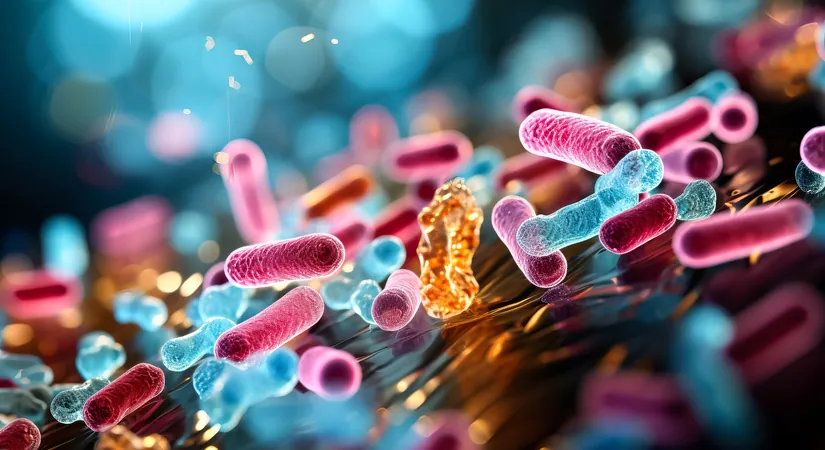
Groundbreaking Mouse Study Unravels Gut-Brain Connection and Its Impact on Behavior
2025-06-26
Author: Siti
The Hidden Link Between Gut Health and Mental Well-being
Did you know that gut-brain interaction disorders (DGBI) affect more than 40% of both children and adults? These disorders not only wreak havoc on our gastrointestinal systems but also have significant implications for mental health, often manifesting as anxiety and depression. Although the gut microbiome has been shown to play a role in these conditions, the exact mechanisms remain elusive, stymying the development of effective treatments.
New Research Sheds Light on Behavior Normalization
Recent pioneering research from McMaster University unveils a fascinating discovery: intestinal dendritic cells, crucial players in the immune system, can migrate to the brain and influence behavior. This study offers new insights into how shifts in gut bacteria can transform brain function and behavior. It suggests that the early phases of microbial colonization can have lasting effects on mental health.
The Experiment: Gnotobiotic Mice to the Rescue
To tackle the complex relationship between gut microbiota and brain function, researchers utilized gnotobiotic mice—mice bred in sterile conditions with a precisely defined microbial community. They introduced various gut bacteria into these germ-free mice, observing their behavior before and after colonization with different microbial strains, including Escherichia coli and other bacterial communities.
Behavioral Shifts Post-Colonization
The results were striking. Germ-free mice initially exhibited more risk-taking behaviors than their conventionally raised counterparts. However, within just two weeks post-colonization, their behavior began to mirror that of normal mice. Intriguingly, this normalization occurred regardless of whether they were introduced to a single bacterial strain or a more complex community. Changes in brain chemistry were also observed, particularly in regions regulating emotions and learning.
Role of Dendritic Cells Exposed
Perhaps the most significant finding was the role of intestinal dendritic cells. Activated by specific immune signaling pathways, these cells are vital for reestablishing normal behavior following microbial colonization. The study revealed that some dendritic cells carry bacterial fragments into the brain, and when their migration is inhibited, the behavioral changes post-colonization did not occur.
A New Dawn for Psychiatric Research?
This trailblazing research not only reinforces the essential connection between our gut microbiome and mental health but also raises critical questions about the surge in psychiatric disorders and DGBI. The findings point to the innate immune system's involvement in activating neuro-immune networks, paving the way for potential new therapies targeting these gut-brain pathways.
Implications for Future Health Treatments
As we gain a deeper understanding of how gut bacteria influence brain function, this research could revolutionize treatment options for countless patients. Moreover, the mechanisms identified may also apply during adult gastrointestinal infections, potentially explaining the emergence of psychiatric issues in these cases.




 Brasil (PT)
Brasil (PT)
 Canada (EN)
Canada (EN)
 Chile (ES)
Chile (ES)
 Česko (CS)
Česko (CS)
 대한민국 (KO)
대한민국 (KO)
 España (ES)
España (ES)
 France (FR)
France (FR)
 Hong Kong (EN)
Hong Kong (EN)
 Italia (IT)
Italia (IT)
 日本 (JA)
日本 (JA)
 Magyarország (HU)
Magyarország (HU)
 Norge (NO)
Norge (NO)
 Polska (PL)
Polska (PL)
 Schweiz (DE)
Schweiz (DE)
 Singapore (EN)
Singapore (EN)
 Sverige (SV)
Sverige (SV)
 Suomi (FI)
Suomi (FI)
 Türkiye (TR)
Türkiye (TR)
 الإمارات العربية المتحدة (AR)
الإمارات العربية المتحدة (AR)